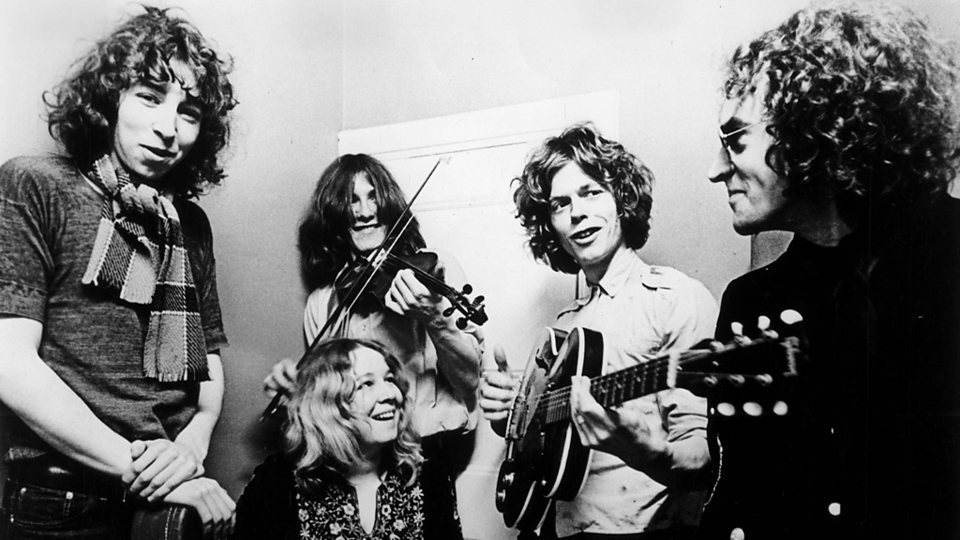-
Music Moderators: deficiT
You are using an out of date browser. It may not display this or other websites correctly.
You should upgrade or use an alternative browser.
You should upgrade or use an alternative browser.
Folk
- Thread starter Gormur
- Start date
mr peabody
Bluelight Crew
The Band [1969] - The Night They Drove Old Dixie Down (outtake)
mr peabody
Bluelight Crew
Nick Drake [1972] - Pink Moon


Last edited:
mr peabody
Bluelight Crew
Fairport Convention [1969] - Come All Ye


- Richard Thompson – guitar
- Ashley Hutchings – bass
- Dave Mattack – drums
- Dave Swarbrick - fiddle
- Sandy Denny – vocal, piano
- Simon Nicol – guitar, vocal
AbbeyLee
Bluelighter
And in the naked light, I saw
Ten thousand people, maybe more
People talking without speaking
People hearing without listening
People writing songs that voices never shared
And no one dared
Disturb the sound of silence
AbbeyLee
Bluelighter
mr peabody
Bluelight Crew
Steeleye Span [1970] - All Things Are Quite Silent
All things are quite silent, each mortal at rest,
When me and my true love lay snug in one nest,
When a bold set of ruffians broke into our cave,
And they forced my dear jewel to plough the salt wave.
I begged hard for my darling as I would for my life.
But they'd not listen to me although a fond wife,
Saying: The king must have sailors, to the seas he must go,
And they left me lamenting in sorrow and woe.
Through green fields and meadows we of times have walked,
And the fond recollections together have talked,
Where the lark and the blackbird so sweetly did sing,
And the lovely thrushes' voices made the valleys to ring.
Now although I'm forsaken, I won't be cast down.
Who knows but my true love some day may return
And will make me amends for my trouble and strife,
And me and my true love might live happy for life.

All things are quite silent, each mortal at rest,
When me and my true love lay snug in one nest,
When a bold set of ruffians broke into our cave,
And they forced my dear jewel to plough the salt wave.
I begged hard for my darling as I would for my life.
But they'd not listen to me although a fond wife,
Saying: The king must have sailors, to the seas he must go,
And they left me lamenting in sorrow and woe.
Through green fields and meadows we of times have walked,
And the fond recollections together have talked,
Where the lark and the blackbird so sweetly did sing,
And the lovely thrushes' voices made the valleys to ring.
Now although I'm forsaken, I won't be cast down.
Who knows but my true love some day may return
And will make me amends for my trouble and strife,
And me and my true love might live happy for life.

- Maddy Prior – vocals
- Tim Hart – guitars, dulcimer, mandolin, vocals
- Ashley Hutchings – bass
- Gay Woods – vocals, bodhran
- Terry Woods – guitars, concertina, vocals
Press gangs were a legal and much-used means of making up the numbers for British Naval crews during the 18th and early 19th century. It seems that even the marriage bed was no insurance against being pressed to sea. To maintain the crews inside the ‘wooden walls of England’ in the hellish conditions below decks, press-gangs forced men when there were no volunteers, and wives and sweethearts were left behind to mourn.
Appalling conditions on board ships of the “King's Navee” in the 18th and early 19th Centuries meant plenty of work for the men of the press-gangs. After having raised as many recruits as possible by posting patriotic bills in the market towns around the seaport, the captains of the ships of the line would send out press-gangs to search the courts, the streets and the inns. If these methods brought insufficient numbers, they would not stop short of dragging a man from his marriage bed.
Appalling conditions on board ships of the “King's Navee” in the 18th and early 19th Centuries meant plenty of work for the men of the press-gangs. After having raised as many recruits as possible by posting patriotic bills in the market towns around the seaport, the captains of the ships of the line would send out press-gangs to search the courts, the streets and the inns. If these methods brought insufficient numbers, they would not stop short of dragging a man from his marriage bed.
Last edited:
Everlynquinn
Bluelighter
- Joined
- Jul 20, 2023
- Messages
- 159
Bodhran part is very faint, but her voice, It feels like I am listening to angels.
Everlynquinn
Bluelighter
- Joined
- Jul 20, 2023
- Messages
- 159
Nice drum rhythm and good vocals.
one man and his bodhran
Everlynquinn
Bluelighter
- Joined
- Jul 20, 2023
- Messages
- 159
Steeleye Span [1970] - Lowlands of Holland

- Maddy Prior – vocals
- Tim Hart – guitars, dulcimer, mandolin, vocals
- Ashley Hutchings – bass
- Gay Woods – vocals, bodhran
- Terry Woods – guitars, concertina, vocals
- Gerry Conway – drums
Wonderful tune.
RareForm
Bluelight Crew
Everlynquinn
Bluelighter
- Joined
- Jul 20, 2023
- Messages
- 159
Lovely guitar and vocals.
Everlynquinn
Bluelighter
- Joined
- Jul 20, 2023
- Messages
- 159
Steeleye Span [1970] - All Things Are Quite Silent
All things are quite silent, each mortal at rest,
When me and my true love lay snug in one nest,
When a bold set of ruffians broke into our cave,
And they forced my dear jewel to plough the salt wave.
I begged hard for my darling as I would for my life.
But they'd not listen to me although a fond wife,
Saying: The king must have sailors, to the seas he must go,
And they left me lamenting in sorrow and woe.
Through green fields and meadows we of times have walked,
And the fond recollections together have talked,
Where the lark and the blackbird so sweetly did sing,
And the lovely thrushes' voices made the valleys to ring.
Now although I'm forsaken, I won't be cast down.
Who knows but my true love some day may return
And will make me amends for my trouble and strife,
And me and my true love might live happy for life.

Appalling conditions on board ships of the “King's Navee” in the 18th and early 19th Centuries meant plenty of work for the men of the press-gangs. After having raised as many recruits as possible by posting patriotic bills in the market towns around the seaport, the captains of the ships of the line would send out press-gangs to search the courts, the streets and the inns. If these methods brought insufficient numbers, they would not stop short of dragging a man from his marriage bed.
I wish they also played concertina.
mr peabody
Bluelight Crew
Nick Drake [1970] - Northern Sky

Last edited:
mr peabody
Bluelight Crew
Nick Drake [1972] - Cello Song


Everlynquinn
Bluelighter
- Joined
- Jul 20, 2023
- Messages
- 159
This Thread gave a me new set of tunes to listen to.
mr peabody
Bluelight Crew
Fairport Convention [1969] - The Deserter

Simon Nicol - guitar
Sandy Denny - vocals
Richard Thompson - guitar
Ashley Hutchings - bass
Dave Swarbrick - fiddle
Dave Mattacks - drums

Simon Nicol - guitar
Sandy Denny - vocals
Richard Thompson - guitar
Ashley Hutchings - bass
Dave Swarbrick - fiddle
Dave Mattacks - drums
Everlynquinn
Bluelighter
- Joined
- Jul 20, 2023
- Messages
- 159
Fairport Convention [1969] - The Deserter

Simon Nicol - guitar
Sandy Denny - vocals
Richard Thompson - guitar
Ashley Hutchings - bass
Dave Swarbrick - fiddle
Dave Mattacks - drums
Thank you for sharing.
mr peabody
Bluelight Crew
Fairport Convention [1969] - Lark In The Morning


- Richard Thompson – guitar
- Ashley Hutchings – bass
- Dave Mattack – drums
- Dave Swarbrick - fiddle
- Sandy Denny – vocal, piano
- Simon Nicol – guitar, vocal





